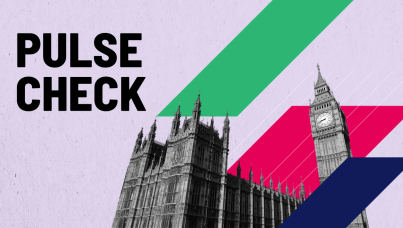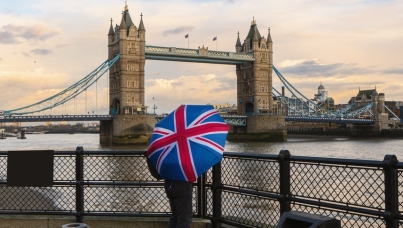Uncovering the Reality of Economic Abuse Among Women in the UK
Why does she stay? Why doesn’t she just leave? Why doesn’t she just ask for help? Victim-survivors of domestic abuse have heard these questions multiple times over the years.
What recent Ipsos UK research shows us again is that it is the abuse itself and its insidious nature that makes it impossible for a person to leave an abusive relationship.
Ipsos & SEA - Exploring the Prevalence of Economic Abuse Among Women in the UK - Webinar Recording
Tuesday 10th December
In a recent survey conducted for Surviving Economic Abuse, Ipsos UK found that nearly a quarter (23%) of women who have experienced some kind of economic abuse, said that the abuse itself prevented them from leaving their abusive relationship. In real terms that’s 942,000 women aged 18+ who have felt unable to leave their abuser. That’s larger than the entire population of Leeds and Bristol combined.
When I first read that figure I was shocked. Even more so when I learned that 15% of women in the UK have experienced economic abuse in the last 12 months. At the time I wondered why I hadn’t heard about the prevalence of economic abuse prior to conducting this research. What the data highlights is that only 7% of women in England and Wales know the term “economic abuse” well.
I now understand that economic abuse by its nature is secretive, coercive and controlling, and that the hidden nature of it may be its most dangerous characteristic.
Economic abuse involves a current or ex-partner controlling a victim-survivor’s money and the things that money can buy. This includes an abuser:
- controlling a personal or joint bank account,
- taking out a credit card in the victim’s name,
- deliberately destroying the victim’s belongings, or
- depriving the victim of daily essentials like sleep or food.
This kind of abuse is less visible than a bruise or a cut, but no less impactful. Victim-survivors who participated in our research described experiencing mental-ill health, feelings of fear, and isolation as a result of experiencing economic abuse.
Acknowledging these impacts shows part of the reason why a woman can’t “just leave” the relationship. But consider as well that it is often the most vulnerable women who experience economic abuse.
Women who identify as having a disability were more likely to have experienced economic abuse in the past year, while women from an ethnic minority background were twice as likely as white women to have experienced economic abuse. Young women (aged 18-24) and mums are also more likely than their counterparts to have experienced economic abuse in the past 12 months.
It’s a complex picture on why a woman can’t “just leave” an economically abusive relationship. Not only is she more likely to be disabled, young, or a mum and have challenges that come along with these individual and intersectional identities, but the deceptive nature of economic abuse means that many victims feel unable to voice their struggle: 42% of victims we surveyed said they never sought any help or advice about their situation with nearly one in five (18%) of these saying they didn’t think anything could help.
The data paints a bleak picture of the landscape of economic abuse in England and Wales today. But the fact that we have the data at all is powerful. As researchers, we know that “what gets counted, counts” and by conducting the research we hope to elevate the voices of those who have experienced economic abuse.
As a researcher, I firmly believe that having strong and actionable data can be the catalyst for change. I ask you to contribute to this change by reading the research, and learning about economic abuse, so that we can start asking questions that go beyond “why doesn’t she just leave?”.
Visit SEA’s website to find out more about their work and access information for victim-survivors, their friends and family and professionals: survivingeconomicabuse.org
This work was supported by the VISION consortium, which is funded by the UK Prevention Research Partnership, an initiative funded by UK Research and Innovation Councils, the Department of Health and Social Care (England) and the UK devolved administrations, and leading health research charities.
As a part of this research Ipsos and SEA have conducted extrapolations to understand the possible number of women who are affected by economic abuse. These extrapolations have been conducted using the total population figure for Women aged 18+ in the United Kingdom as 26.89 million. Source: ONS Annual Population Survey for 2024 (July 2023- June 2024): Demographics for women aged 18 or over by ethnicity, UK, July 2023 to June 2024 - Office for National Statistics.
Where can I find support around economic abuse and domestic abuse?
If you are in immediate fear for yourself or someone else’s safety, please call 999.
Surviving Economic Abuse
Surviving Economic Abuse have a range of tools and resources on their website for victim-survivors experiencing economic abuse and for professionals, friends and family supporting them. They also run a Support Forum. The Financial Support Line for Victims of Domestic Abuse is run by Money Advice Plus, SEA’s front line partner, and offers specialist advice to anyone experiencing domestic abuse who is in financial difficulty.
I need help - Surviving Economic Abuse
Samaritans
Free, 24-hour line, to talk about whatever is getting to you.
Helpline: 116 123
https://www.samaritans.org
Women’s Aid
Support services and information for anyone affected by domestic abuse.
https://www.womensaid.org.uk
National Domestic Abuse Helpline
0808 2000 247
https://refuge.org.uk/
The Survivors Trust
National membership organisation supporting specialist rape and sexual abuse services.
08088 010818
https://www.thesurvivorstrust.org/
Rape Crisis
0808 500 2222
https://rapecrisis.org.uk/
Mind
Mental health charity offering support and information.
https://mind.org.uk
Victim Support
Victim Support operates a free and confidential 24/7 Supportline and live chat service, every day of the year - offering specialist support to anyone who has been a victim of crime or a witness.
0808 1889 111
https://www.victimsupport.org.uk
Men's Advice Line
Helpline for male victims of domestic abuse.
0808 8010 327
https://mensadviceline.org.uk/
Mankind
Helpline for male victims of domestic abuse.
01823 334 244
https://mankind.org.uk/






